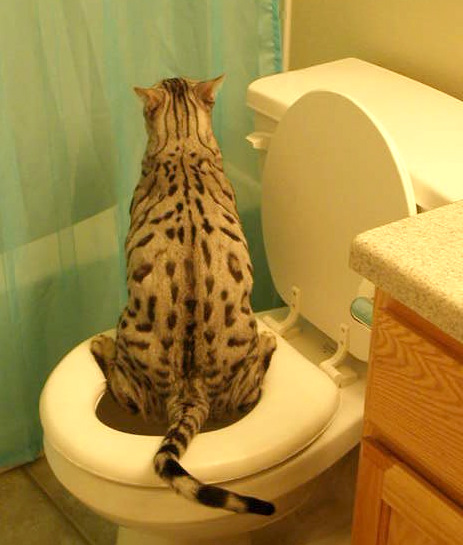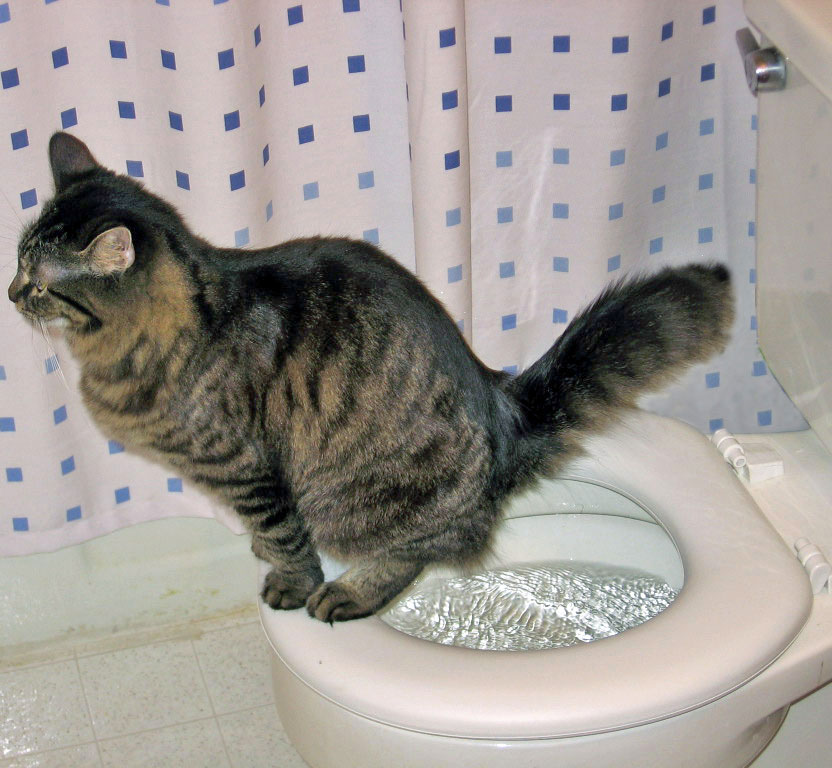Do you find yourself interested in advise around Don’t flush cat feces down the toilet?

Intro
As pet cat owners, it's essential to bear in mind how we throw away our feline buddies' waste. While it might seem hassle-free to flush feline poop down the toilet, this technique can have destructive repercussions for both the setting and human health and wellness.
Ecological Impact
Flushing feline poop introduces dangerous pathogens and bloodsuckers right into the water system, positioning a significant danger to aquatic ecosystems. These contaminants can adversely impact aquatic life and concession water quality.
Health and wellness Risks
Along with environmental concerns, flushing pet cat waste can additionally present health risks to human beings. Cat feces may consist of Toxoplasma gondii, a bloodsucker that can cause toxoplasmosis-- a possibly extreme illness, particularly for expecting ladies and people with damaged immune systems.
Alternatives to Flushing
Luckily, there are more secure and more accountable methods to dispose of cat poop. Think about the adhering to alternatives:
1. Scoop and Dispose in Trash
One of the most usual method of throwing away pet cat poop is to scoop it into a naturally degradable bag and toss it in the garbage. Be sure to utilize a committed litter scoop and throw away the waste without delay.
2. Usage Biodegradable Litter
Opt for naturally degradable pet cat clutter made from products such as corn or wheat. These clutters are eco-friendly and can be securely gotten rid of in the garbage.
3. Hide in the Yard
If you have a backyard, consider hiding pet cat waste in a designated area far from veggie yards and water resources. Be sure to dig deep sufficient to avoid contamination of groundwater.
4. Mount a Pet Waste Disposal System
Buy a pet garbage disposal system especially designed for feline waste. These systems utilize enzymes to break down the waste, reducing odor and environmental impact.
Conclusion
Responsible pet ownership expands past offering food and shelter-- it likewise includes correct waste monitoring. By avoiding purging feline poop down the toilet and opting for alternative disposal approaches, we can lessen our environmental footprint and shield human wellness.
Why Can’t I Flush Cat Poop?
It Spreads a Parasite
Cats are frequently infected with a parasite called toxoplasma gondii. The parasite causes an infection called toxoplasmosis. It is usually harmless to cats. The parasite only uses cat poop as a host for its eggs. Otherwise, the cat’s immune system usually keeps the infection at low enough levels to maintain its own health. But it does not stop the develop of eggs. These eggs are tiny and surprisingly tough. They may survive for a year before they begin to grow. But that’s the problem.
Our wastewater system is not designed to deal with toxoplasmosis eggs. Instead, most eggs will flush from your toilet into sewers and wastewater management plants. After the sewage is treated for many other harmful things in it, it is typically released into local rivers, lakes, or oceans. Here, the toxoplasmosis eggs can find new hosts, including starfish, crabs, otters, and many other wildlife. For many, this is a significant risk to their health. Toxoplasmosis can also end up infecting water sources that are important for agriculture, which means our deer, pigs, and sheep can get infected too.
Is There Risk to Humans?
There can be a risk to human life from flushing cat poop down the toilet. If you do so, the parasites from your cat’s poop can end up in shellfish, game animals, or livestock. If this meat is then served raw or undercooked, the people who eat it can get sick.
In fact, according to the CDC, 40 million people in the United States are infected with toxoplasma gondii. They get it from exposure to infected seafood, or from some kind of cat poop contamination, like drinking from a stream that is contaminated or touching anything that has come into contact with cat poop. That includes just cleaning a cat litter box.
Most people who get infected with these parasites will not develop any symptoms. However, for pregnant women or for those with compromised immune systems, the parasite can cause severe health problems.
How to Handle Cat Poop
The best way to handle cat poop is actually to clean the box more often. The eggs that the parasite sheds will not become active until one to five days after the cat poops. That means that if you clean daily, you’re much less likely to come into direct contact with infectious eggs.
That said, always dispose of cat poop in the garbage and not down the toilet. Wash your hands before and after you clean the litter box, and bring the bag of poop right outside to your garbage bins.
https://trenchlesssolutionsusa.com/why-cant-i-flush-cat-poop/

I was shown that article on How to Dispose of Cat Poop and Litter Without Plastic Bags through a good friend on another web address. Are you aware of another person who is enthusiastic about the subject? Why not share it. Thanks for your time. Kindly check our site back soon.
View More